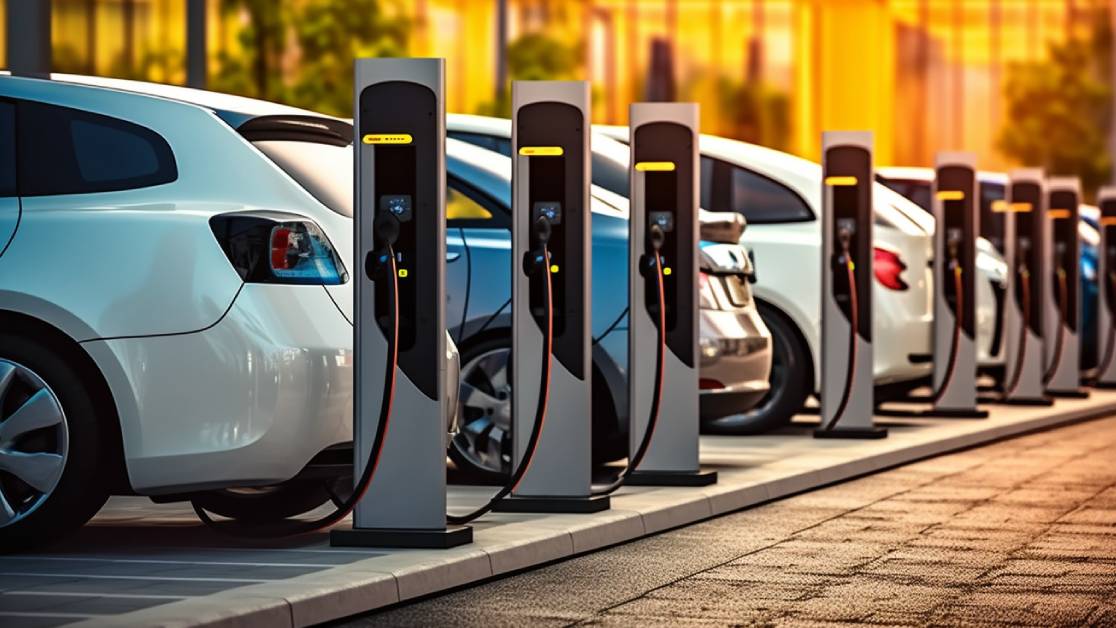The Growing Demand for EV Charging Infrastructure
The automotive sector has recently experienced a notable transition towards electric vehicles (EVs), leading to a rising demand for commercial EV chargers. As individuals grow more aware of environmental issues, they select EVs for their efficiency and reduced ecological footprint. This transition towards sustainable transportation highlights the urgent need for a robust EV charging infrastructure to support this growing fleet on the roads of today and tomorrow. With global EV sales reaching unprecedented heights and projections indicating continued growth, the necessity for widespread and reliable charging stations is undeniable. Cities and towns worldwide recognize the increased need to integrate sophisticated charging networks into their landscapes, transforming urban planning efforts. This development not only enhances accessibility for EV owners but also contributes significantly to economic growth by creating new opportunities within the technological and energy sectors. Moreover, the rising demand for skilled professionals in this sector stimulates job creation, fostering an environment ripe for innovation and entrepreneurship. As EVs become more commonplace, their integration into existing infrastructure mitigates carbon footprints and aligns with global sustainability goals.
Current Challenges in EV Charging
Despite the progress, several challenges persist within the EV charging world. A primary concern is the discrepancy in the number and distribution of charging stations, which can vary significantly between urban and rural areas. This disparity often makes potential EV drivers in remote locations hesitant to shift due to fears of limited access to essential charging facilities. In addition, different types of chargers usually imply compatibility issues, rendering certain stations unusable for specific EV models. For many potential EV adopters, these uncertainties complicate the decision-making process.
Furthermore, with the increase in electric vehicle adoption, the capability of the power grid to handle the surge in energy demand raises essential questions about potential upgrades and expansions needed. Based on outdated technology in many areas, the existing grid infrastructure may need to be prepared to efficiently support the rapid influx of new EVs on the road. For the market to flourish, addressing these obstacles is essential. Solutions may include establishing standardized charging systems or incentivizing businesses to install chargers on their premises, thus encouraging the expansion of accessible infrastructure. Enhancing grid resilience through innovative technologies can optimize energy use and minimize disruptions. The ultimate aim is to eliminate “range anxiety” and bolster confidence in EV reliability, supporting broader adoption and more sustainable driving practices. Cooperation among stakeholders, such as car manufacturers, municipal authorities, and energy providers, will be essential to addressing these issues and achieving the complete benefits of the EV charging infrastructure.
Innovative Technologies Transforming the Sector
Electrical engineering and technology advancements are vital to overcoming current barriers in EV charging. Fast-charging stations, which significantly reduce charging time to a fraction of what it used to be, are cropping up in more locations, allowing EV owners to replenish power in mere minutes rather than hours. It addresses convenience and time efficiency concerns and aligns with modern consumers’ fast-paced lifestyles. Moreover, wireless charging technology, still in its infancy, holds the promise of a future of ultimate convenience by eliminating cumbersome cables and allowing vehicles to charge effortlessly via electromagnetic fields.
These innovations improve the user experience and strengthen the sector’s adaptability to new demands. The implementation of smart grid systems, machine learning applications to predict energy consumption patterns, and blockchain technologies for secure transactions are among the advancements enhancing EV charging’s efficiency. Machine learning models, for example, can optimize the allocation of resources to ensure that high-demand locations are prioritized, thus reducing congestion and wait times. Similarly, blockchain can be utilized to establish transparent and secure payment systems, offering users smooth and effortless charging experiences. As a result, the EV market continues to evolve, offering greater accessibility and convenience tailored to consumer expectations. By embracing these cutting-edge solutions, the sector showcases resilience and foresight in rapid growth and change, setting the stage for a sustainable and interconnected transport network.
Sustainability: Marrying Green Energy with EV Charge
Fusing renewable energy with EV charging presents a formidable approach to sustainability. Businesses and governments can significantly minimize the carbon footprint linked to electricity production by utilizing solar panels and wind energy for charging stations. This initiative aligns with global efforts to transition to cleaner energy to respond to climate change and environmental degradation. Furthermore, integrating renewable energy sources underscores a commitment to a sustainable, circular economy where resources are utilized efficiently and responsibly. Further adopting renewable resources in EV infrastructure ensures that these vehicles remain genuinely green from production to operation. Integrating energy storage systems and developing microgrids further augment the resilience of renewable-powered charging stations, ensuring they can operate sustainably and efficiently even during peak hours. These solutions buffer systems from energy supply and demand fluctuations and enable energy independence and sustainability. As these technologies proliferate, they provide an essential reminder that sustainable living is achievable through thoughtful innovation, positioning green energy as a central pillar in the ongoing evolution of transportation systems worldwide. Companies spearheading these initiatives serve as role models, showcasing how innovation can lead to financial and environmental benefits.
Government Policies and Support
Policies promoting cleaner transport are becoming a staple in national and regional agendas. Governments worldwide are implementing incentive programs, providing tax benefits, and establishing grants for developing infrastructure designed to accommodate electric mobility. These measures not only support the growth of EVs but also signal their unwavering commitment to environmental stewardship. Regulatory bodies are progressively setting ambitious targets, mandating automakers to adhere to stringent emissions standards and encouraging the development of energy-efficient technologies. Governments are establishing the foundation for a sustainable transportation system by fostering an atmosphere favorable to adopting electric vehicles.
Furthermore, regulations are directing the automotive industry towards more sustainable practices, with emission targets and production quotas specifically for electric vehicles. Such strategic provisions can bridge existing gaps between current infrastructure and future needs. By fostering partnerships among municipalities, private enterprises, and consumers, governments can stimulate economic investment while advancing sustainable practices on a broad scale. The alignment of economic and environmental goals underscores a proactive approach to facing climate challenges and securing a sustainable future. Collective efforts, characterized by collaboration and shared objectives, will drive the transition to greener, more efficient transportation systems, ultimately benefiting society.
Future Outlook of EV Charging Infrastructure
The future of EV charging infrastructure looks promising. The EV sector is poised for significant growth with continuous technological advancements and increased policy support. As cities become more interconnected with charging networks, a sustainable transportation revolution seems within reach. These developments offer the potential to profoundly reshape urban landscapes, introducing new forms of mobility and redefining sustainability in transportation.
The global shift towards electric mobility is not just a trend; it’s an enduring change propelled by innovation, environmental consciousness, and the pursuit of sustainable growth. As hyperlocal networks develop and consumers become more conscious of their ecological impact, demand for clean and efficient commuting alternatives will naturally rise. Leveraging modern technologies and strategic policies, the journey towards a cleaner planet through electric vehicles and comprehensive charging solutions is underway. The continued focus on research and development will spur breakthrough technologies, making EV charging more accessible, efficient, and integrated into everyday life. This ongoing progression highlights the potential for transformative change within the transportation sector, aligning technological capability with ecological necessity.
Keep an eye for more latest news & updates on Essential Tribune!








